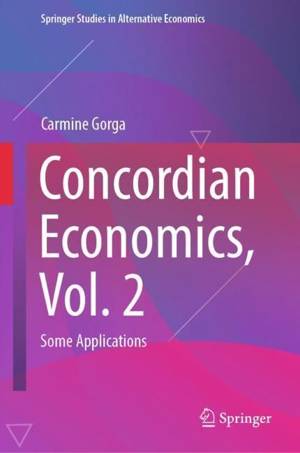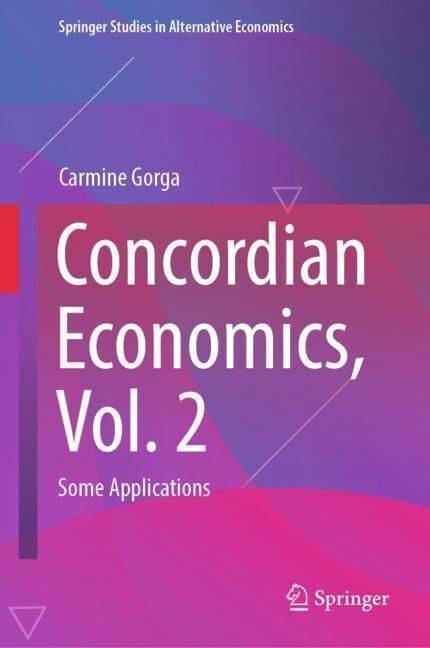
- Retrait gratuit dans votre magasin Club
- 7.000.000 titres dans notre catalogue
- Payer en toute sécurité
- Toujours un magasin près de chez vous
- Retrait gratuit dans votre magasin Club
- 7.000.0000 titres dans notre catalogue
- Payer en toute sécurité
- Toujours un magasin près de chez vous
Description
This is the second volume of a two-part series on Concordian economics, an innovative paradigm that builds upon the Aristotelian-Aquinian tradition of economic justice. Having introduced Concordian economics in the first volume as a compelling research paradigm that addresses the limitations of mainstream economics, this second installment takes the exploration further by examining its real-world applications in four policy areas.
With a focus on industrial organization, labor markets, monetary, and fiscal policy, the author advocates for a transformative approach to economic rights and responsibilities. By promoting a moral economy, this book offers a substitute to the Pac-Man approach to industrial organization. The book challenges traditional notions by discussing the ownership rights concerning larger corporations and offering visionary solutions, in the steps of Louis O, Kelso, empowering workers and employees to participate in the ownership of robots and artificial intelligence. The Fed has given a nod of approval to the creation of a new Concordian monetary system. Following the advice of eight Nobel Laureates in economics, the proposed fiscal reforms emphasize taxing only the value of land and natural resources, ushering in a society where the use of our natural resources and machines serves the common good, economic freedom thrives, and forced income redistribution becomes obsolete.
This book illustrates a vivid vision of a world founded on universal economic rights and responsibilities, offering fresh perspectives on a more just and sustainable future. It appeals to scholars and students of economics and related fields, as well as anyone interested in a free but just economic system.
Spécifications
Parties prenantes
- Auteur(s) :
- Editeur:
Contenu
- Nombre de pages :
- 276
- Langue:
- Anglais
- Collection :
Caractéristiques
- EAN:
- 9783031546419
- Date de parution :
- 13-04-24
- Format:
- Livre relié
- Format numérique:
- Genaaid
- Dimensions :
- 156 mm x 234 mm
- Poids :
- 594 g

Les avis
Nous publions uniquement les avis qui respectent les conditions requises. Consultez nos conditions pour les avis.






